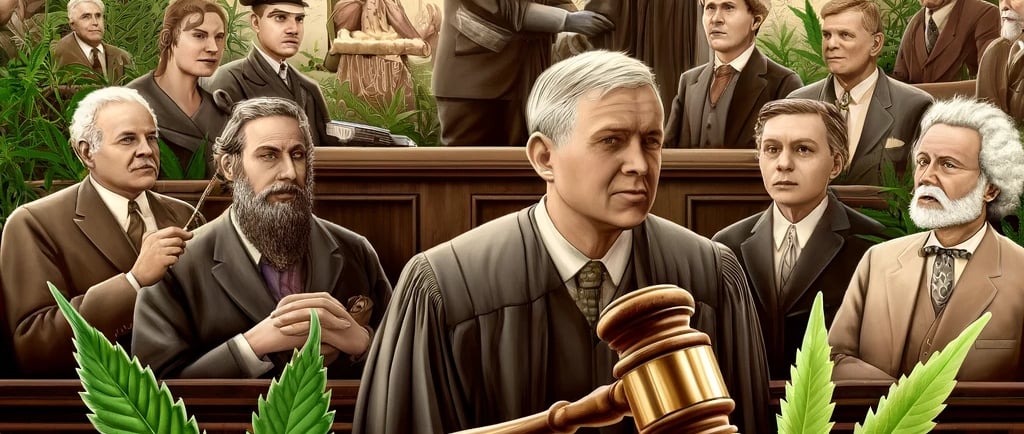Cannabis and Legal Battles: A History of Reform
The journey towards cannabis legalization has been fraught with legal battles, advocacy, and significant policy shifts. This article delves into the history of cannabis legislation, highlighting key legal cases, changes in public opinion, and the tireless efforts of advocates that have shaped the current legal landscape of cannabis. It offers insights into the complexities of cannabis law and the ongoing struggle for reform.
CANNABIS GUIDE
4/19/20242 min read


Early Legal Frameworks and Prohibition
The history of cannabis in legal contexts begins with its widespread use and subsequent prohibition in the early 20th century. Influenced by racial and political factors, many countries adopted strict anti-cannabis laws, categorizing it alongside more dangerous drugs and imposing severe penalties for its use and distribution.
Pivotal Legal Cases
Leary v. United States (1969): This landmark case involved psychologist Timothy Leary, who challenged the Marihuana Tax Act of 1937 after being arrested for cannabis possession. The outcome led to the Act’s declaration as unconstitutional, which prompted the U.S. Congress to control substances through the Controlled Substances Act.
Raich v. Gonzales (2005): This Supreme Court case tested the limits of federal power to regulate local cannabis activities under the Commerce Clause, ultimately affirming federal authority to prohibit cannabis even where states have legalized it.
Advocacy and Public Opinion Shifts
The role of advocacy groups and changing public opinion has been crucial in shaping cannabis policy. Organizations like NORML (National Organization for the Reform of Marijuana Laws) and the Drug Policy Alliance have worked tirelessly to educate the public, influence lawmakers, and promote a more scientific approach to cannabis.
Medical Cannabis Movement: The discovery of cannabis’s medicinal properties and the advocacy for medical cannabis laws have been pivotal, softening public attitudes and paving the way for broader legalization efforts.
Modern Legalization Efforts
In recent decades, several jurisdictions have moved towards decriminalization or full legalization of cannabis, driven by advocacy, economic incentives, and a deeper understanding of its safety profile compared to other substances.
Colorado and Washington (2012): These states were the first in the U.S. to legalize cannabis for recreational use, setting a precedent that several other states and countries have followed.
Challenges and Future Legal Landscapes
Despite progress, the path to comprehensive cannabis legalization remains complex. Conflicts between state and federal laws, international treaties, and uneven regulatory practices continue to pose challenges.
Potential Reforms: Advocates continue to push for descheduling cannabis from the Controlled Substances Act, promoting social justice reforms, and integrating cannabis markets into national economies legally and safely.
Conclusion
The legal battles over cannabis have been long and contentious, but the trajectory points towards increased legalization and acceptance. The history of cannabis reform is not just a legal narrative but a profound story of societal change, reflecting broader movements towards civil liberties, scientific recognition, and an inclusive society.
